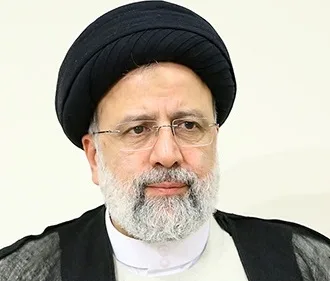Iranian leaders condemn the deadly attack on their embassy compound in Damascus, promising a response to the action
President Ebrahim Raisi of Iran vehemently condemned Israel’s recent airstrike on an Iranian embassy compound in Damascus, Syria, resulting in the death of three top Iranian commanders. In a public statement, Raisi declared the strike an “inhumane assault” and a clear violation of international law, promising that it would not go unanswered. The attack targeted the Iranian Embassy complex in Damascus, killing three generals of Iran’s Quds Force and four other officers. This incident escalates the longstanding shadow war between Israel and Iran, marking one of the deadliest attacks in recent years.
Following the attack, Iran’s foreign minister, Hossein Amir Abdollahian, voiced his government’s position, stating that the United States, as Israel’s ally, must bear responsibility for Israel’s actions. In a significant diplomatic move, Iran summoned the Swiss ambassador—the US representative in Iran due to the absence of direct diplomatic relations between Tehran and Washington—demanding that a crucial message be delivered to the US government.
The call for an “appropriate response” resonates strongly among the Iranian populace, as voiced by Seyyed Nezamoldin Mousavi, the spokesman for Iran’s parliament leadership. This national sentiment manifested in widespread protests across various cities in Iran, including the capital, Tehran. Demonstrators waved Palestinian and Iranian flags, vocally demanding retribution against Israel and extending their anger towards the United States. The chants of “Death to Israel” and “Death to America” echoed through the crowds, highlighting the intense public outcry and the potential for a significant escalation in tensions.
In response to these developments, the United States has distanced itself from the airstrike. A spokeswoman for the National Security Council clarified that the US had no involvement in the strike and was not informed about it in advance. Furthermore, the US communicated directly to Iran, emphasizing its non-involvement.
The international community watches closely as the United Nations Security Council schedules an emergency meeting to address the fallout from Israel’s attack. The meeting, requested by Russia—a close ally of Iran—aims to discuss the implications of the attack on diplomatic buildings and its violation of international law. This incident not only exacerbates the delicate situation in the Middle East but also draws attention to the intricate web of alliances and enmities that could potentially influence the global geopolitical landscape
